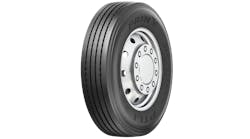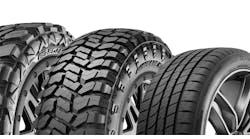Continental Corp. reported net income of 738 million euros on sales of 11.0 billion euros for its first quarter ended March 31, 2018. That compares to income of 750 million euros on sales of 11.0 billion euros in the year-ago period.
Based on the exchange rate on March 31, Continental had income of $909 million on sales of $13.6 billion. The company’s income to sales ratio was 6.7%.
First-quarter sales were up 0.1% and income was down 1.6% year over year.
Continental reported its adjusted operating result (adjusted EBIT) fell by 9.0%, year over year, to more than 1.1 billion euros. The adjusted EBIT margin was 9.7% versus 10.6% in the year-ago quarter.
Continental’s cash flow dropped 69.2%, from 133 million euros to 41 million euros year over year.
In the first three months, the company’s Rubber Group generated sales of €4.2 billion euros versus 4.3 billion euros in 2017’s first quarter.
The company said exchange-rate effects in particular created headwind in the first three months. Despite these negative effects amounting to 546 million euros, sales were on a par with the same period of the previous year at 11.0 billion euros.
After the first three months, the adjusted operating result of 1.1 billion euros was down on the previous year’s figure. This is due both to negative exchange-rate effects and to negative effects from inventory valuations amounting to 100 million euros. In total, the company expects related negative effects on earnings of around 150 million euros in the first half of 2018, which, as reported in a mandatory announcement on April 18, can no longer be offset by the end of the year.
“Our first quarter was weighed down by strong exchange-rate effects in smaller markets in which our local production footprint is very limited. We saw extreme fluctuations in exchange rates between currencies in these countries, coupled with the strong appreciation of the euro. This unusual situation weakened our natural hedge against exchange-rate effects. However, it is still the case that our EBIT margin is largely hedged against exchange-rate effects at the corporate level, as we produce and sell locally in many of our markets,” said CFO Wolfgang Schäfer with regard to the transaction effects from exchange-rate changes in the first quarter.


